- Home
- Michael Swanwick
The Iron Dragon's Daughter Page 3
The Iron Dragon's Daughter Read online
Page 3
"Bleeding?" she said blankly.
Blugg pointed down at her leg with a fat, blunt finger. "There."
Jane looked down. There was blood trickling down her calf. She could feel it now, itching all the way down from her thigh.
This final indignity broke her delicately maintained control. The sudden, sorcerous appearance of blood from some previously unsuspected wound ruptured the membrane holding back all her fear and apprehension. She began to cry.
"Oh, shit." Blugg made a face. "Why does all this crap always happen to me?" Disgusted, he waved her to the door. "Go on! Go straight to the nurse's station, and do whatever she tells you."
* * *
"Congratulations," the nurse said. "You're a woman now."
The nurse was a sour old creature with piggy eyes, a pointed nose, and two donkey's ears. She showed Jane how to fold a sanitary napkin, and what to do with it. Then she delivered a memorized lecture on personal hygiene, gave her two aspirins and sent her back to the dormitory.
Rooster was there already. He lay delirious upon his bed, head swathed in bandages. "He's going to lose his left eye," Dimity said. "That's if he lives. They said if he doesn't die tonight, he'll probably be okay."
Jane timidly touched Rooster's shoulder, though she could scarcely bear doing so. His skin was pale as wax, and cold. "Fly the friendly skies," he mumbled, lost in some faraway delirium. "Join the Pepsi generation."
Jane snatched her hand away from him, as if scorched.
"I'm taking care of him. So don't you interfere." Dimity smoothed the blanket down fussily. There was a defiant edge to her voice. When she was done, she leaned back, hands on hips, waiting for Jane to challenge her. Then, when Jane did not, she smiled meanly. "Time for you to go to bed. Isn't it?"
Jane nodded and went to her corner.
The grimoire was waiting for her. The shadow-boy had left it under her folded blanket as instructed. She undressed slowly, managing to spread out the blanket and slip beneath without exposing the book. When she put her arms around it, she experienced a tingling sensation, like a low-voltage electrical current running through her. It made her feel strange.
That night, it seemed to take forever for the children to fall asleep. Rooster groaned and cried and babbled in his sleep, and his pain terrified them. Some of the smaller creatures crept from their own cots to huddle with their friends. Even the oldest among them occasionally sighed or turned over on their sides to face away from his suffering.
At long last, though, only Jane remained awake.
Silently, she slipped from her covers and under the bed. She pried up the broken board and squeezed into the narrow space between the dormitory room and the sand shed wall. It was dark there and dusty, but not close, for neither wall reached quite to the ceiling. A tiny draft found her and, naked, she shivered. It was not quite cold enough, though, to force her back for her dress. She groped blindly behind her for the grimoire, and pulled it in after her.
Rooster groaned. In a high, lucid voice he said, "Two all-beef patties, special sauce, lettuce, cheese…" Jane found herself unable to breathe. "… and a sesame seed bun." It was too awful, his lonely voice speaking to no one in the emptiness of the night. "Teflon." She grasped the broken board with her hand and swung it to. With it closed, she could no longer hear him.
Settling herself down on her heels, she placed the grimoire on her lap and opened it. The pages were black and lightless, but the letters shone coolly, silvery to the eye and slick to the touch. She found that when she concentrated hard on them, a whispery sense of meaning filled her, though she could not quite capture the significance of each word. This was a table of compression ratios, and here was a section on machining tolerances for the cylinders. She lingered briefly over the calibration settings for the crystals, then flipped ahead, trusting to her fingertips to convey to her the essence of what they skimmed, skipping and leaping ahead until she came to what she wanted.
It was the chapter that told how to actually operate a dragon.
Until that instant, she had not known what she intended. Now, though, running her hands over and over the schematics with their cryptic symbols for capacitors and potentiometers and resistors and grounds, dipping her head so she could caress the printed dials and circuits with her cheek, breathing deep the ink and coated-paper smell that emanated from each page, it seemed to her that she had been born intending to someday steal a dragon.
The space between walls was so tight it pinched her shoulders. She did not notice. Her head was full of fast black dragons. What had been invisible to her, because ubiquitous, now stood revealed. She heard them scream supersonic across the sky, fueled by wrath and gasoline. She felt the gravitational pull of them, the superheated backwash of their passing. And she saw herself riding one away, away, away.
First, though, she would have to master the grimoire. She would have to learn how the dragons were operated.
For hours Jane pored over the book, gently touching and internalizing the chapter sigil by sigil. She finished her first reading of it in time for breakfast. She crawled out of the wall just as the wake-up whistle blew, and was marched off to eat, yawning, bone weary and happy.
The next night, for the first time, she heard the dragon speak to her.
* * *
Three days later Jane, Dimity, and Thistle were taken to the machine shop. The regular work spaces were all claimed, and after some argument with the shop supervisor Blugg took a box of machine wheels under his arm and led them upstairs. A balcony-level string of rooms ran completely around the building there. It was junk space, but Blugg found a place for them between a wooden stairway and the brick chimney-top of an industrial alembic. They were given a rickety wood bench at a window ledge, and told to wipe the wheels clean of grease.
Then Blugg left.
The window had long ago been painted over, glass and all, with white or green or gray paint—it was hard to guess which now—and there was a gap of at least a foot between the upper sash and the top of the frame, glued permanently open. Chill air poured down on them. A brown enameled kerosene heater wedged under the stairway strained to offset the cold.
"Trade places with me," Dimity said, as soon as Blugg was gone. "Thistle and I want to be closer to the heater."
Jane almost refused. But Dimity was always complaining about the cold; it was possible she felt it more. And Thistle was smiling in rather a mean way. It was probably best to give in to them on this one.
She stood, walked to the far side of the bench, and sat down again without saying a word.
The cogwheels were the size of silver pennies but much thinner, with fine teeth that prickled when touched edge-on. The grease on them was an almost translucent brown, and had hardened so that it did not come off easily. They worked industriously, knowing that Blugg would pop up to look in on them regularly.
But the inspections never came. Hours passed. Blugg seemed to have forgotten them completely.
Jane stared sightlessly ahead as she worked, her thoughts on the grimoire and on the dragon's voice she was still not entirely sure that she heard speaking to her at night. She dreamed of gleaming ebon flanks and smooth, streamlined surfaces, of strength and endurance wedded to ruthless speed. She imagined her hand on the throttle, with all that fearsome power under her control.
Beside her, Dimity sighed.
The silvery-dull sunlight streaming in over the top of the window was suddenly divided by the fluttering shadow of wings. Dimity looked up and eagerly cried, "Toad eggs!"
"Toad eggs?" Thistle said dimly. "Eww. Whatever are you talking about?"
"Up there, under the roof. That's where they've built their nests." Dimity climbed up on the ledge and stood on tiptoe. She stretched an arm out the window as far as it would go, her tail twitching impatiently. There were several muddy blobs on the undersides of the eaves. "Damn! I can't quite…"
"There won't be any eggs," Jane pointed out. "Nothing lays eggs in the autumn."
"Toads d
o. It's not like the spring clutch; it doesn't hatch. They store them away for the winter, so they'll have something to eat during the Axe Moon." She looked down, a strange smile twisting her wide mouth. "Jaaane! Climb out there, and fetch me in some eggs."
"I'm no climber! Why don't you get Smidgeon or Little Dick or…"
"They're not here." She exchanged glances with Thistle, and before Jane could react, the shifter had seized her and thrust her up alongside Dimity. The young feys were both preternaturally strong. Laughing, they stuck her out the window and shoved. The box of cogwheels was kicked over, and little metal wheels went spinning and rolling away. "Out you go, my lovely!" Dimity sang.
Jane clutched wildly at the frame. Cold wind blew in her face, forcing tears to her eyes. Across a cinder-paved courtyard, Building 6 reeled up at her, dark clouds scudding above. Below and to one side, she saw the tar paper roof of a utility shack, dotted with bits of brick and old soda bottles. It was at least a thirty-foot drop.
"Oh, holy Mother!" Jane gasped. Desperately, she struggled to pull herself back in.
But tough, merciless hands pried her fingers free. With a jar, she was pushed out into the void. Flailing, afraid she would throw up, she squeezed her eyes shut tight and grabbed for the window frame. Her weight rested atop the upper sash now. Only her legs were inside.
"Don't wriggle, you'll make us drop you."
She had hold of the frame again. Brittle flakes of paint crunched under her fingertips. She pulled herself flat against the building, brick scratching her cheek. The sweet, pungent smell of toad droppings filled her nostrils. The outside top of the frame was white with them. It was cold out here, too. She shivered convulsively. "Oh, please let me in," she babbled, "sweet Dimity, I'll do anything you ask me, I'll be your best friend, only—"
"Here." A hand shot out with a plastic bag in it. "Fill this up, and you can come back in again." One of Jane's shoes had fallen off and now she felt Thistle peel her sock back. A sharp fingertip drew itself up the center of her foot, paused, then waggled at the softest part of her flesh. "Stop that tickling! If she falls, I won't get any eggs." The hand moved impatiently up and down. "Take the bag."
Jane obeyed. She took a long, deep breath, and opened her eyes. Her head and stomach were so dizzy-sick that it took her a moment to realize that she was staring up at the underside of the eaves. There must be twenty nests up there, warty and bulging things with a hole to one side, like ill-made jars.
The toads had scattered when she first emerged from the window. They fluttered in agitation not far off, their black-feathered wings beating hysterically. They were loathsome things, the miscegenated get of jackdaws upon their lustful batrachian dams, and like their sires they were notorious thieves. Their nests were ordinarily kept cleared away from the roofs because they had a fondness for shiny objects and, unlike most wild things, had little or no fear of fire. They had been known to torch buildings by filching lit cigarettes and carrying them back to their nests. They were a terrible hazard.
Trembling, she stretched out a hand. The nest was just out of reach. Unhappily, she knew that Dimity would never accept that as an excuse. Taking a long, steadying breath, she forced herself to lean back over empty air. With the arm clutching the window fully extended she could easily reach the nearest nest. She squeezed her hand into the opening.
The inside of the nest was lined with fine black down, silkily soft to her touch. She probed to the back of the nest, and found a clutch of sticky warm eggs. She scooped them out and straightened at the waist, returning to the window. Awkwardly she opened the bag and dropped the eggs within. They slid to the bottom in a mass.
She hadn't gotten all the eggs. She leaned back again to scoop up those she had missed. This time, she only got a half-handful, along with two bits of aluminum foil, a shard of broken glass, and a chromed hex nut. These last she let drop to the distant ground.
Second nest. She dredged out the eggs quickly. Just as she was withdrawing her hand, the wind whipped up, sending a blast of icy air right through her clothing. She knew better than to look down, but the sudden swirl of air made her feel especially vertiginous. She wanted to cry, from fear and frustration, but dared not.
If she started crying now, she might never stop.
This nest had, in addition to the eggs, several more bits of foil and a jagged strip of copper sheeting gone green that made her think for a horrified instant that something had stung her, when she jabbed her hand against the point. "The bag is almost half-full!" she cried. "Can I come back in again?"
"Not enough."
"But I can't reach any more. Really I can't."
Dimity's face appeared in the window opening. Her grip on Jane's legs slipped a bit, and Jane cried out in fear. Dimity squinted judiciously. "That one there." She pointed. "You can reach it."
Jane's fingers ached. She was not sure her strength would hold out. The underside of the eaves crawled in her vision from her staring so hard, but when she closed her eyes all the world seemed to flip over, and she had to open them quickly or lose her balance.
She forced herself to stretch out as far as she could.
Her hand would not quite reach. "Dimity—" she began tremblingly.
"Eggs!"
There was only one way. Jane squirmed a little higher up on the window, so that her weight now rested halfway down her thighs. She stretched so far she could hear her bones creak.
Again her hand slipped into a nest. She felt the downy warmth and then the slippery stickiness within. She curved her hand and scooped out the eggs.
But the toads were beginning to regain their courage. They croaked and kawed at her, and made short, threatening swoops. One flew almost in her face, and when she threw up an elbow to protect herself, it bounced off her forearm with a solid, slimy thump. Jane's stomach lurched in revulsion.
"Hold my legs tight," she whispered, not at all sure she could be heard, but unable to speak any louder. She straightened at the waist.
Then she was back at the window. Grasping, she hugged it to her.
For a long time she was unable to move. When she had somewhat recovered herself, she tremblingly opened the bag and dropped in her final handful of eggs. Something red gleamed within. She stuck in two fingers to fish it out.
It was a ruby.
The ruby was half as long as her thumb, hexagonal in cross section, and flat on both silvered ends, an industrial crystal used in occult information systems for the storage and processing of data. Smaller than a pencil stub, it was probably worth more than Jane herself was.
The problem was that she dared not bring it in with the eggs, or Dimity, her avarice excited, would send her out again to look for more. She'd return it to the nest if she dared, but her strength and nerve both were shot. If she dropped it and it were later found, Dimity would hear and figure out what had happened.
The top of the window ledge was white with droppings. She stuck the crystal in among them, and said, "Let me in. I've got your eggs."
* * *
Dimity snatched the bag from Jane's hand, even before she could climb wobblingly down from the ledge and collapse on the bench. "Good little Janie, nice little Janie-poo," she gloated, sliding her hand deep into the bag, and dumping a great gelatinous mass in Thistle's eagerly cupped palms. She placed an egg into her mouth and closed her eyes in ecstasy as it popped. She shoveled in more.
The cogwheels were all over the floor. Wearily, Jane righted the box and began picking them up. "Dimity," she said at last. "Why do you hate me?"
Dimity smiled an eggy smile. Thistle opened her mouth wide to show its inside yellow with yolk. Bits of shell clung to her lips. "Want some? After all, you fetched them."
Tears welled up in Jane's eyes. "I never did anything to you. Why are you like this to me?"
Thistle's cheeks were bulging with eggs. Dimity swallowed hers down, then turned the plastic bag inside out and began licking it. "I hear you're going to be Blugg's messenger," she said.
"Blugg'
s little pet is more like it," Thistle spat. "That's what you are, aren't you, Missy?"
"No, I'm not!"
"You know what he really wants, don't you?" Dimity thrust an arm up Thistle's skirt, and Thistle rolled her eyes in mock ecstasy. "He wants you to be his familiar."
Jane shook her head. "I don't know what that means."
"He wants to poke his wig-wag into your cunny."
"But that doesn't make any sense!" she wailed. "Why would he want—?"
Dimity's eyes turned the hard flat red of two garnets. "Don't act so innocent with me! I hear you creeping out of bed at night, crawling into the wall so you can stick your fingers up your rabbit-hole."
"No. Really."
"Oh! No, of course. You wouldn't do anything like thaa-at. Hotsy-totsy Little Miss Changeling. Think we're so special, do we? Just you wait until Blugg sticks his thing in your heinie-hole, let's see you put on your airs then!"
Thistle began to skip and dance about Jane, lifting her skirts up above her waist and waggling her skinny little behind. "Heinie-hole, heinie-hole," she sang. "Heinie-heinie-heinie-hole."
"Just keep this in mind, girlie-girl." The fey grabbed her by the collar, bunched it together, and lifted her painfully off the ground. "I give the orders here. What I say goes, messenger or not, familiar or not. You obey me. Got that?"
"Yes, Dimity," she said helplessly.
"He'll want to put it in your mouth too," Thistle smirked.
* * *
Rooster lay abed for a week before he lapsed long enough into consciousness to get caught up. When his resources were at ebb, he lay motionless, struggling to breathe, each gasp of air rough and anguished. Sometimes he cried. Other times, snatches of glossolalic nonsense floated out of him. "The proletarians have nothing to lose but their chains," he said. "Lucky Strike Means Fine Tobacco."
Every night Jane waited until the others were asleep and crept into the wall to commune with the grimoire. When she had read herself into a trance, half exhaustion and half rapture, the dragon's voice would speak from the back of her skull. It told her they were both prisoners. It said their destinies were linked, and spoke of the freedom that would be theirs when they two flew off together, describing endless mountain chains with cold, high lakes, southern archipelagoes twisting like lizards, and high aeries niched among the autumn stars. She stayed, listening, inside the wall for as long as possible, emerging only when she was in danger of nodding off and being discovered missing at roll call the next morning. She didn't know if the dragon's voice were real or fantasy, and she didn't care.

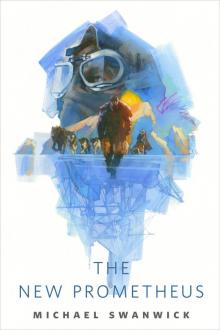 The New Prometheus
The New Prometheus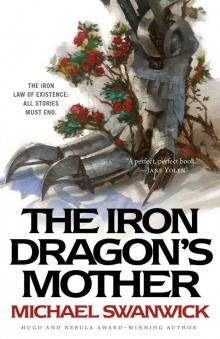 The Iron Dragon’s Mother
The Iron Dragon’s Mother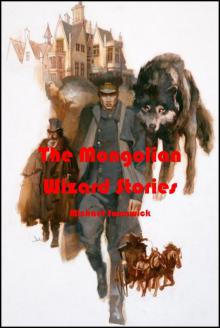 The Mongolian Wizard Stories
The Mongolian Wizard Stories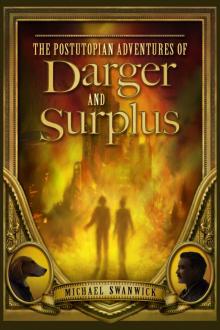 The Postutopian Adventures of Darger and Surplus
The Postutopian Adventures of Darger and Surplus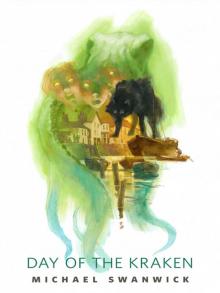 Day of the Kraken
Day of the Kraken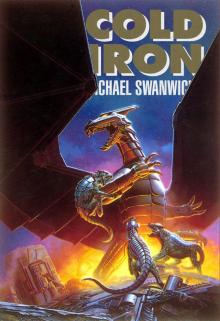 Cold Iron
Cold Iron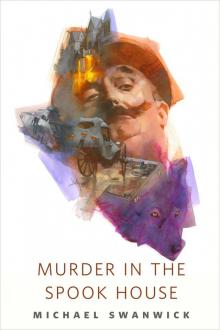 Murder in the Spook House: A Tor.com Original
Murder in the Spook House: A Tor.com Original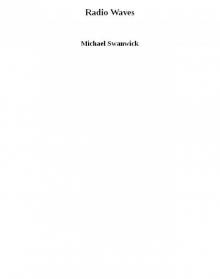 Radio Waves
Radio Waves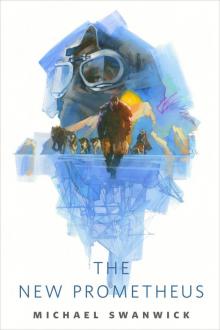 The New Prometheus: A Tor.com Original
The New Prometheus: A Tor.com Original Stations of the Tide
Stations of the Tide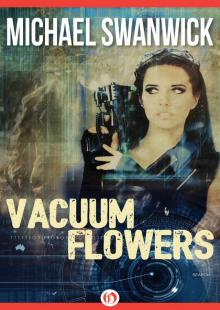 Vacuum Flowers
Vacuum Flowers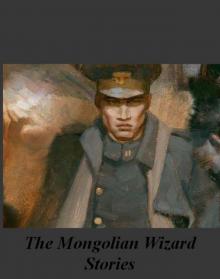 The Mongolian Wizard Stories (online stories 1-7)
The Mongolian Wizard Stories (online stories 1-7)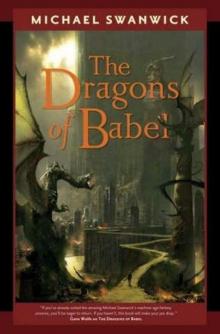 The Dragons of Babel
The Dragons of Babel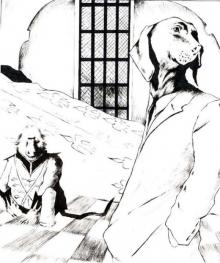 The Dog Said Bow-Wow
The Dog Said Bow-Wow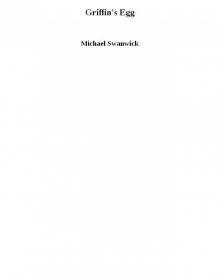 Griffin's Egg
Griffin's Egg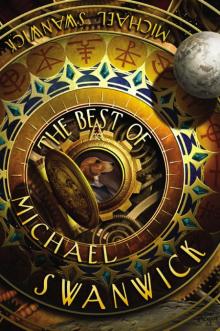 The Best of Michael Swanwick
The Best of Michael Swanwick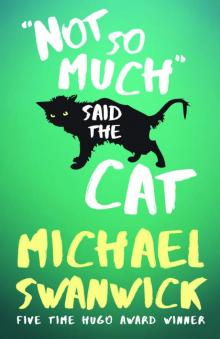 Not So Much, Said the Cat
Not So Much, Said the Cat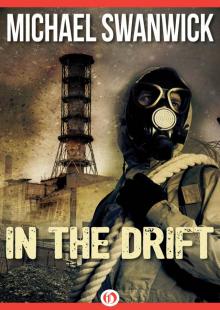 In the Drift
In the Drift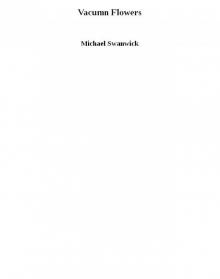 Vacumn Flowers
Vacumn Flowers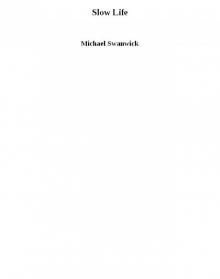 Slow Life
Slow Life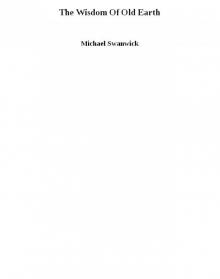 The Wisdom Of Old Earth
The Wisdom Of Old Earth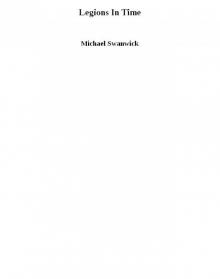 Legions In Time
Legions In Time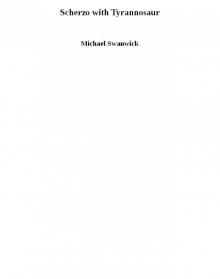 Scherzo with Tyrannosaur
Scherzo with Tyrannosaur The Year's Best Science Fiction (2008 Edition)
The Year's Best Science Fiction (2008 Edition)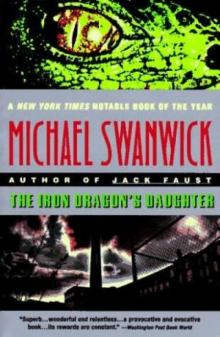 The Iron Dragon's Daughter
The Iron Dragon's Daughter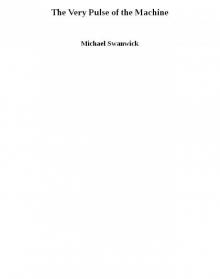 The Very Pulse of the Machine
The Very Pulse of the Machine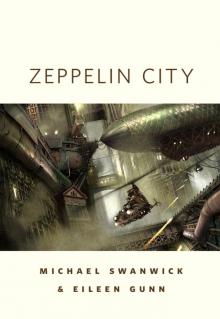 Zeppelin City
Zeppelin City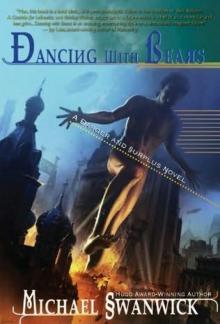 Dancing with Bears
Dancing with Bears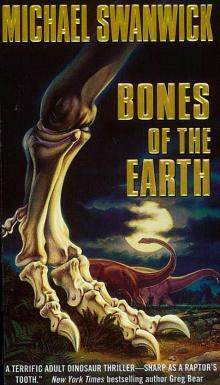 Bones of the Earth
Bones of the Earth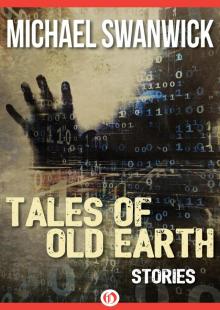 Tales of Old Earth
Tales of Old Earth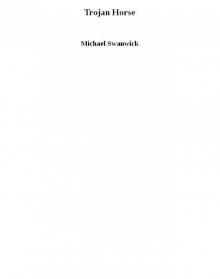 Trojan Horse
Trojan Horse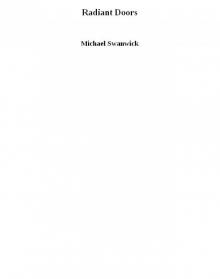 Radiant Doors
Radiant Doors